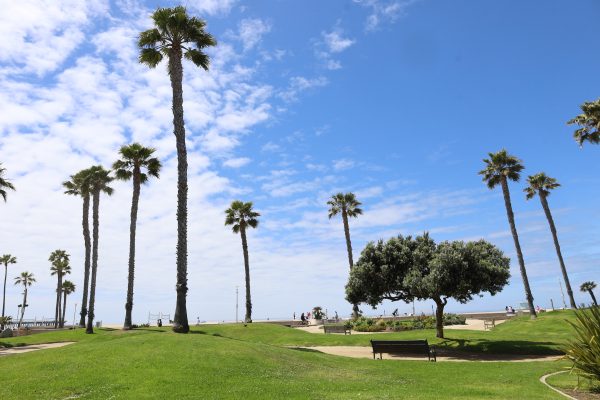
It was the last concert of the season for the Asia America Symphony Orchestra, and one that marked the orchestra’s 50th anniversary – having originated in 1961 as the Japanese Philharmonic Orchestra of Los Angeles. The music was performed in front of an appreciative audience last Friday at the Norris Theatre in Rolling Hills Estates, and furthermore it’s the most comfortable venue I can think of in the entire South Bay.
The program kicked off with the spirited “Hoe-Down” from Aaron Copland’s “Rodeo,” which conveys the very feel of its title as it gallops from the stage. It’s one of those pieces that demands nimble fingers from practically every musician in the orchestra.
I’m not sure if this was meant to be the highlight of the evening, but Tchaikovsky’s “Violin Concerto, Opus 35 in D major” will linger in the memory on account of soloist Eleanor Dunbar, who is 15-years-old and yet as elegant – and as composed – as the music itself. Swaying gently as she played the Allegro moderato, Dunbar is truly a young woman of grace and ethereal beauty, and perhaps others were as astonished as I was in how she elicited such depth and feeling from her violin. Nuance, timing, tonal sensitivity, volume, energy; how has she mastered her instrument and Tchaikovsky’s music so well? Or was Dunbar herself the instrument, the music using her as the vehicle in order to express itself? Hearing something this splendid, it may cross one’s mind that the violin, and the composer for the violin, must surely be among Mankind’s greatest gifts to humanity.
After intermission, the orchestra performed the world premiere of David Benoit’s “Eastern Sky,” conducted by the composer himself. It is a lush and panoramic piece, much like a grand, sweeping film score that, with its Asian touches, is reminiscent of the soundtracks to the motion pictures of Kaige Chen, Zhang Yimou, or Hsiao-hsien Hou (“Farewell My Concubine,” “Raise the Red Lantern,” and “A City of Sadness”).
The piece is not lengthy, but it unrolls like a Chinese scroll, beginning with the lilting birdsong of a flute as if taking wing from a Debussy-tinged dawn. There is a pretty melody at each turn of the composition, with enough references to a lighter jazz style and sensibility to give this work Benoit’s personal stamp. A little surprise was saved for the end, when the composer/conductor suddenly turned and walked offstage. The musicians continued to play, but there was the sense of something simmering being left unattended. And sure enough, Benoit hurried back moments later – and with a vigorous snap or two of his baton he restored order and harmony. It was a bit of a gimmick, to be sure, but it brought soft laughter to the audience — and so “Eastern Sky” concluded on a warm note.
To mark his own anniversary with the orchestra, now at ten years, Benoit felt that Beethoven’s “Ode to Joy” from the maestro’s ninth symphony would be appropriate. In 2009, Benoit conducted this magisterial work at Disney Hall with a chorus of close to 400. This reviewer actually sat just a few feet from the choir, so I’m remembering the experience of that endeavor in a visceral, firsthand manner.
By just performing the last movement, we effectively cut to the chase and leave out the foreplay, but of course this is the one section of the symphony that is best known and certainly best loved. L.A. Daiku, under the direction of Dr. Jeffrey Bernstein, provided the vocals, with soprano Andrea Renee Fuentes, tenor Suren Hazarian, mezzo-soprano Shabnam Kalbari, and baritone Christian Nova as the soloists.
But what shall we say of this musical Mount Rushmore that hasn’t been noted so many times? I am always riveted by the way this final movement crawls like a shadow from the cellos and double basses across to the violas and up to the violins. The Asia America Symphony Orchestra played it well, the voices were rich and mellifluous, and rising afterwards from our seats we could only hope that there are other glorious seasons ahead for everyone who performed on this special occasion. ER










